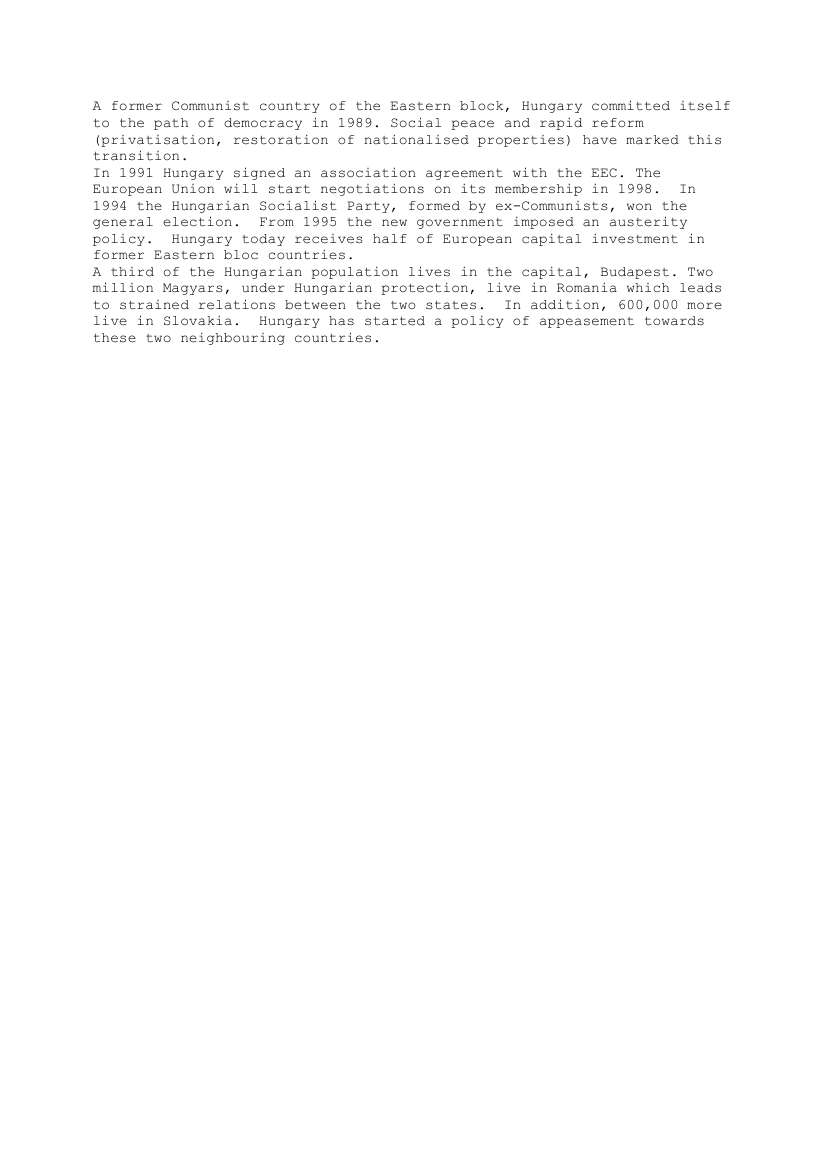A former Communist country of the Eastern block, Hungary committed itselfto the path of democracy in 1989.
Publié le 23/05/2020

Extrait du document
«
A former Communist country of the Eastern block, Hungary committed itself
to the path of democracy in 1989.
Social peace and rapid reform
(privatisation, restoration of nationalised properties) have marked this
transition.
In 1991 Hungary signed an association agreement with the EEC.
The
European Union will start negotiations on its membership in 1998.
In
1994 the Hungarian Socialist Party, formed by ex-Communists, won the
general election.
From 1995 the new government imposed an austerity
policy.
Hungary today receives half of European capital investment in
former Eastern bloc countries.
A third of the Hungarian population lives in the capital, Budapest.
Two
million Magyars, under Hungarian protection, live in Romania which leads
to strained relations between the two states.
In addition, 600,000 more
live in Slovakia.
Hungary has started a policy of appeasement towards
these two neighbouring countries..
»
↓↓↓ APERÇU DU DOCUMENT ↓↓↓
Liens utiles
- A former Eastern block country, which opposed Soviet power from the1980s, in 1990 Poland moved to a market economy.
- With the fall of communism the collapse of trade with the former USSRplunged this country into serious economic difficulties.
- Czechoslovakia put an end to the communist regime with the "velvetrevolution" in 1989.
- It was with the "velvet revolution" of 1989 that Czechoslovakia put anend to the communist regime but the writer Vaclav Havel became Head ofState and was then unable to withstand nationalist tensions.
- The fall of the Berlin Wall on 9th November 1989 was one of the majorpolitical events at the end of this century.


